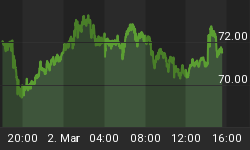Does the Belgian business confidence index for March point to the Euro-zone economy peaking in the summer months and starting to weaken again come Q4? Thanks to Belgium's strong trade ties with its neighbors, this index is a leading indicator (about 6 months out) for GDP growth in the Euro-zone as a whole. The index has climbed fairly steadily since Q2 2005, and jumped into positive territory in February, hitting +1.5, its highest point in 19 months. However, it slipped to +0.9 in March.
Chart 1
One month does not a clear trend make - this is not necessarily a sign that Euro-zone GDP growth will top out over the summer then weaken again. As long as it remains in positive territory, the BNB index is still pointing to growth. However, most of this month's positive reading came from the retail sub-index, which picked up nicely (+0.5 from -1.5 in February). The manufacturing sub-index dropped from +1.6 to just +0.3, with the component on the trend in domestic orders slipping from +3 to +2, while the component on the export order trend fell from +20 in February to +6. If the overall index - and particularly the export order trend in the manufacturing sub-index - slides again next month (April 24), then there will be reason to look more closely at the prognosis for the Euro-zone later this year.
For now, the next important economic indicator for the Euro-zone is the German Ifo business climate index, due March 28. The main index has seen a strong and steady recovery over the past few months, from a trough of 92.6 in May 2005 to 103.3 in February. The last time the Ifo hit this level was back in May 2000 when the reading topped out at 102.1. It would not be surprising if next Tuesday's result comes in a tad weaker. However, a drop in the vicinity of two points or more would suggest the Ifo is headed south again. And that would be cause for concern on the Euro-zone outlook.
Chart 2
















